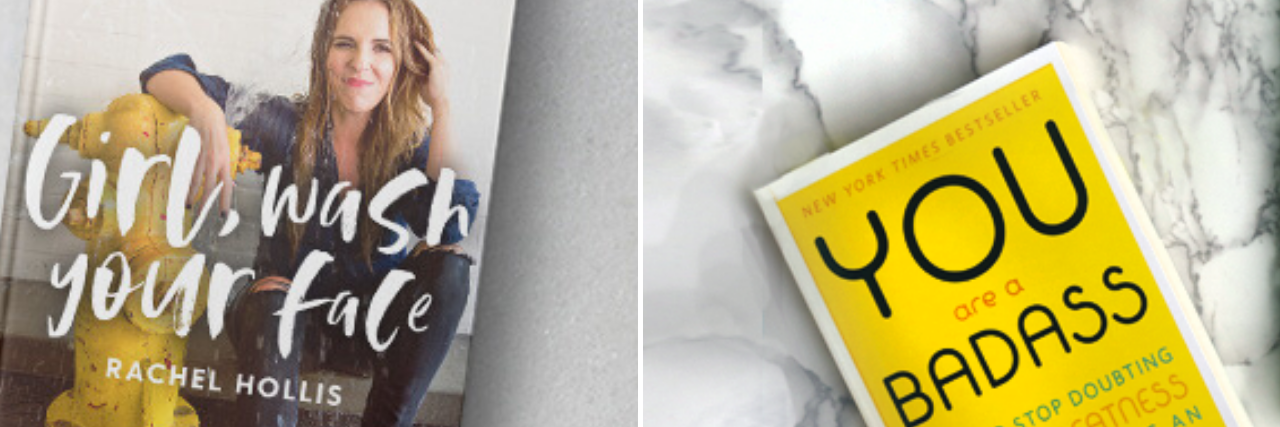I recently became the owner of one of my great grandmother’s textbooks. Published in 1893 and titled, Public School Physiology and Temperance, the book was used to teach high school students about the human body and how to take care of it.
• What is Bipolar disorder?
 It’s part human physiology textbook, part instructional book for how young women can lead healthy, modest and chaste lives. What I learned from it, beside some really cool new stretches, is books telling us how to live our lives is not a new thing. Self-help books are so popular now they have entire sections in bookstores devoted to the genre. And I will admit, I’ve walked through that section of the bookstore many times, hoping that maybe, just maybe, there would be a book there to solve my problems. I’ve flipped through several of them, but I always end up even more discouraged. The reason is simple — stigma.
It’s part human physiology textbook, part instructional book for how young women can lead healthy, modest and chaste lives. What I learned from it, beside some really cool new stretches, is books telling us how to live our lives is not a new thing. Self-help books are so popular now they have entire sections in bookstores devoted to the genre. And I will admit, I’ve walked through that section of the bookstore many times, hoping that maybe, just maybe, there would be a book there to solve my problems. I’ve flipped through several of them, but I always end up even more discouraged. The reason is simple — stigma.
If you have a mental illness, you know what stigma is. But just so we are all on the same page, stigma is a negative stereotype associated with people who have a mental illness. The Canadian Mental Health Association has identified that “prejudices against people with mental health conditions permeate most social milieu and contribute to exclusion in subtle and blatant ways.”
A lot of progress has been made in educating the public about mental health and mental illness over the last decade or so. And people are becoming more comfortable talking about mental illness and their own struggles. Celebrities such as Olympian Clara Hughes, singer Lizzo, model Bella Hadid, comedian Pete Davidson and singer, actor and all-around superstar Lady Gaga, have publicly discussed their struggles with mental illness. Thanks in part to their bravery, the conversation around mental illness is changing. But stigma is still real, it’s just, well, different.
The stigma of 2019 looks a lot different than the stigma I originally experienced when I was first diagnosed with a mental illness in 1997. Today, people generally understand everyone struggles from time to time and the virtues of kindness and patience are as important as discipline and industriousness. However, it seems when kindness and patience are offered, it is because the person who is offering it wants to see you become disciplined and hardworking. So, back to the self-help books …
Even though I feel like I am in desperate need of some tough love, honest advice and inspirational quotes, it is clear I won’t find any of these things in the self-help books of 2019. What I do find is “exclusion in subtle ways.” And it’s in black and white on the top of the New York Time’s best sellers list.
Unfu*k Yourself: Get Out of Your Head and into Your Life by Gary John Bishop sells itself as “a book that gives you the power to find everything you ever want residing within you like a well of potential, waiting to be expressed.” Perfect! I would love to discover my very own well of potential! Sadly, I quickly discovered my well is inaccessible for a few reasons. Or maybe it doesn’t exist, I’m not sure.
Bishop tells his readers, “In simple terms, the language you use to describe your circumstances determines how you see, experience, and participate in them and dramatically affects how you deal with your life and confront problems both big and small.”
Now, as someone who regularly gives public presentations and writes about my experience with mental illness, this gives me pause. I chose to use authentic language. While I don’t want to trigger any traumatic memories in those who hear me speak or read my writing, I am not going to sugarcoat a single experience I have had. There is no way to describe being manic and delusional in a way that would allow me to confront my “problem” of mental illness. I agree language is powerful, but trying to use different language to give a new perspective, or find the silver lining in the situation, for someone dealing with suicidal thoughts, depression or anxiety is paternalistic and unhelpful.
I would argue that to try to downplay the seriousness of those states of mind is more an act of denial that would lead to a person not getting the help they need. Let’s be honest about what we are feeling, and use whatever language that requires.
The next quote I found is a bit of a gut punch for anyone with any kind of chronic illness: “If you can’t even stop watching TV long enough to get your life together, you obviously don’t want to change. That’s basic shit. It’s the bare minimum, to be honest.”
OK, now I’m feeling frustrated. Yeah, maybe I’m watching TV tonight when I could be spending time “getting my life together,” but today I got out of bed, I went to work and did some chores. That counts as a “win” for me. And Gary, buddy, if all it took was a desire to change, the mom with postpartum depression, the university student who is unable to go to class because of severe social anxiety, the teenage boy who spends hours a day on rituals related to obsessive-compulsive disorder (OCD) and I would all be cured. We would have our lives together. Believe me, we yearn for a huge change in our lives, one that rids us of the constraints of our illness.
I had to close the Bishop’s book when I saw, “You have the life you are willing to put up with.”
*Sigh*
Obviously, the author isn’t writing for anyone who lives with a chronic illness. We “put up” with a lot of things — doctor’s appointments, expensive treatments, unexpected flares/episodes, stigma, lack of accessibility — every day, but none of it by choice. Bishop wants his reader to get out of their heads and into their lives. The truth is, I think I am very much in my life, immersed in the struggle, triumphs, frustration, small steps forward and leaps backward. My life may be f*cked, but this book won’t change that.
Rachel Hollis looks fun and approachable on the cover of her book, Girl, Wash your Face. I think we could be friends! So, what does she have to say?
“You must choose to be happy, grateful, and fulfilled. If you make that choice every single day, regardless of where you are or what’s happening, you will be happy.”
Choosing to be happy? LOL! Oh, how I wish is was that easy. Any other advice, Rachel?
“While you’re not in control of what life throws at you, you are in control of the fight.”
This seems to be a recurring theme in many self-help books — that while you can’t always control your circumstances, you can control your reaction, or as Hollis says, “the fight.” For anyone reading this right now who feels like they are battling with every ounce of their strength, please don’t buy into this trope. I know you are fighting your illness as best you can, and I know how hard that can be. But if you need rest, please rest. Rest is not defeat. Taking a breath is not failure. The one block of text that really defines this book, and emphasizes its inaccessibility for people with mental illness is this:
“Girl, get a hold of your life. Stop medicating, stop hiding out, stop being afraid, stop giving away pieces of yourself, stop saying you can’t do it. Stop the negative self-talk, stop abusing your body, stop putting it off for tomorrow or Monday or next year. Stop crying about what happened and take control of what happens next. Get up, right now. Rise up from where you’ve been, scrub away the tears and the pain of yesterday, and start again … Girl, wash your face!”
Again, all of these things are presented as choices we can make. I actually choose to medicate myself, with prescribed medication, and would be so much more sick if I didn’t. There are some days I can’t stop crying or “scrub away the pain of yesterday.” And if anxiety was just a choice to “stop being afraid,” well, anxiety disorders wouldn’t exist. What Hollis largely presents in her book is life could be so much better for all of us if we recognized how awesome the world is and started making the right choices for ourselves. It doesn’t allow for circumstances in which a person is unable to recognize the beauty of our world or themselves because of the lens of depression or that the choices people with mental illness have are limited and don’t usually include just adjusting our perception. I chose to put the book down and walk away.
OK, one more. Surely You are a Badass: How to Stop Doubting Your Greatness and Start living an Awesome Life by Jen Sincero can help me. Awesome life, here I come! Or not, I realize as I read: “If you are depressed, you are living in the past. If you are anxious, you are living in the future. If you are at peace, you are living in the present”
Or, hear me out, if you are depressed, it may have a genetic and/or environmental cause, neither of which are well understood, but have nonetheless led to a dysfunction or misfiring in your brain. And if you are anxious, well, kind of the same thing. For some people, living in the present can be great advice and is at the heart of the mindfulness movement. However, for those of us with mental illnesses, we can’t simply live in the present to be at peace.
Oh dear, it seems like she and Gary Bishop have talked to each other: “If you’re serious about changing your life, you’ll find a way. If you’re not, you’ll find an excuse.”
Let me say that if your “excuse” for not changing your life is depression, or schizophrenia, or post-traumatic stress disorder (PTSD), it’s not an excuse, but a very real obstacle. And sometimes all your change-making power goes to managing your illness. I get it. If we could change our lives by making a choice, we would have done that already. (But that doesn’t mean we aren’t badasses, because we totally are.) Despite these frustrations, I did find something to make me smile in Sincero’s book, and as one of the only positive things to come out of my venture into the discouraging world of self-help books, I will leave you with that quote.
“You’re on a journey with no defined beginning, middle or end. There are no wrong twists and turns. There is just being. And your job is to be as you as you can be. This is why you’re here. To shy away from who you truly are would leave the world you-less. You are the only you there is and ever will be. I repeat, you are the only you there is and ever will be. Do not deny the world its one and only chance to bask in your brilliance.”
Lead image via Rachel Hollis’ and Jen Sincero’s Facebooks

